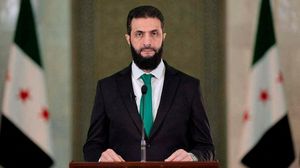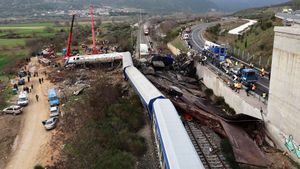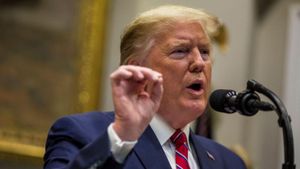Colombian President Gustavo Petro is making headlines with his recent call for undocumented Colombians living in the United States to return to their home country as soon as possible. The president took to the social media platform X (formerly Twitter) to urge his compatriots to leave their jobs, stating, "Wealth is only produced by the working people. Let’s build social wealth in Colombia." This appeal is part of Petro's broader vision to rejuvenate Colombia's economy with the contributions of its citizens abroad.
His administration has promised financial support through the Department of Social Prosperity for those who heed his call to return. This includes potential loans for migrants who wish to reintegrate and start new businesses upon returning home. Petro’s message is anchored on the belief of fostering social wealth domestically, presenting returnees as pivotal to this effort.
The backdrop to Petro's call stems from recent diplomatic tensions with his U.S. counterpart, former President Donald Trump. Just last weekend, the relationship between the two nations soured over immigration policy. During this friction, Petro publicly declined to allow two U.S. military planes carrying deported Colombians to land, which he characterized as treating migrants unjustly—asserting, "A migrant is not a criminal and should be treated with the dignity a human being deserves." This maneuver elicited swift threats from Trump, including potential trade tariffs and other retaliatory measures against Colombia, which could have had dire economic consequences.
Despite the potential fallout, the two sides eventually found common ground, averting what could have been an economic crisis, as the Venezuelan issue looms over the political arena. Reports indicate Colombia accepted 475 deportation flights from the U.S. between 2020 and 2024. Yet, the number of undocumented Colombians living abroad remains uncertain, with estimates around one million from all over South America, according to 2022 figures from the Pew Research Center.
The tension between Petro and Trump culminated when the Colombian leader turned away the military flights due to concerns over the treatment of deported individuals. Many deportees shared grim accounts of their experiences, noting they were often handcuffed upon their return, fueling public sympathy and outrage back home.
Nevertheless, these bold statements from Petro have met with skepticism among some Colombian citizens and political factions. Christian Garcés, a congressman, questioned the effectiveness of Petro's approach, arguing, "Petro's so-called 'battle against the empire' lasted no more than three hours," highlighting the pressures on the Colombian economy from the U.S. trade relationship.
At the same time, Petro's administration is facing dissent domestically, with the Partido Liberal party deciding to withdraw its support from the governmental coalition due to perceived failings on issues to tackle crime, corruption, and the diplomatic fallout with the U.S. Their announcement stated, "The crisis in Catatumbo, tensions in relations with the United States, and corruption scandals... have put the wellbeing and security of Colombians at risk." Catatumbo has become increasingly unstable, impacted by violent clashes between criminal groups.
Colombia's political future hangs precariously as Petro weathers these storms. His administration’s appeals for returnees could provide much-needed human capital for recovery, but the looming shadows of political strife at home and diplomatic instability abroad create challenges. How successful this appeal proves to be in rallying undocumented Colombians back to their homeland remains to be seen.
Though Petro’s entreaty seeks to evoke national pride and collective responsibility among Colombian workers abroad, translating this appeal to action is fraught with complications. Many undocumented migrants have built lives (albeit precarious ones) for themselves across the border, making the decision to return much more complex than the straightforward calculus of patriotism and economic need.
Moving forward, Colombia is at a crossroads. The efficacy of Petro's policies and appeals will be under scrutiny, as the political repercussions of his decisions shape the narrative of the nation. Balancing the needs of the economy, the dignity of its citizens, and the delicate relationship with the U.S. will be pivotal for Colombia’s future. The world watches as President Petro navigates this challenging terrain.



